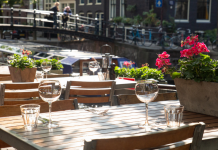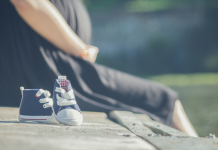November celebrates National Adoption Awareness Month, and as a prospective adoptive parent, I thought I knew what I wanted to write about: Things I Didn’t Know Until I Started the Adoption Process.
There’s a lot about that I could tell you about . . .
How quickly you can fall in love with a child you’ve never met. The roller coaster of highs and lows you experience as you process your “paperwork pregnancy.” The hurry-up-and-wait feeling along every step. The absolute chaos of dealing with foreign governments. The pros and cons of fundraising. Answering weird and extremely personal questions. Considering the ethics of adoption — and so much more. There is A LOT I never could have really understood until we started the process in January 2018.
But what I kept coming back to over and over again during the month of adoption awareness is the idea that adoption is Plan A.
Is Adoption really Plan A?
Many people think of adoption as the path you take when you can’t conceive children biologically. While this is the case for some families, it’s not for many of us. There’s a whole idea of “Plan A” adoption where those of us who have biological children (or have no reason to think we couldn’t conceive biological children) try to emphasize that we are choosing adoption because we genuinely love adoption and believe it’s a beautiful way to grow a family regardless of any external factors. This mindset resonated with me the most at the beginning of the adoption process. We wanted to adopt. We chose this on our own terms. This was Plan A adoption.
However, the more I learn about adoption, the more I realize that this “Plan A” adoption or even “Plan B” adoption can be right and wrong at the same time. For us — the adoptive parents — adoption is Plan A.
But is adoption Plan A for our adoptive child? Is that the narrative we should write across his life?
Adoption begins with loss. Deep, tragic, soul-wrenching loss.
For the adoptive child, Plan A was to be parented by his or her biological parents. Plan B would be adoption by a family relative. Plan C would be domestic adoption within their birth culture. Plan D would be international adoption.
And that’s where I stand right now: Adoption is my Plan A but my son’s Plan D.
What does that mean, and why does it matter?
Over the last year, that truth has radically changed the way I think about the adoption process. I used to watch adoptive families with admiration — thinking about how wonderful it was to give a child a forever family.
Now my thinking is more nuanced. Adoption is a beautiful gift and a privilege for me as an adoptive mom. I am moved to tears by it over and over again. And a forever family is a beautiful thing for an adoptive child. But it is beauty that was made from ashes. There exists deep grief and longing there for birth parents, foster families, the adoptive child and the adoptive parents. None of us are immune to the loss that resulted in the adoption.
As part of this process, we have been trained on what grief looks like in toddlers and how it presents at various stages of development throughout a child’s life. We have read books and articles and blogs from other adoptive families, counselors, doctors, and adoptees themselves. This is what I understood the absolute least at the beginning of the process but long to understand as much as possible now.
If you’re considering adoption:
Read books like The Connected Child and search out Instagram accounts or blogs or books authored by adoptees. I don’t say this to dissuade but to give a bigger picture as to what your child needs. Don’t hear this as bitterness or discouragement! I am absolutely honored to get to be my son’s mom and to navigate this unknown road with him. I’m not scared of it or intimidated by it. I’m not threatened by his desire to learn more about his birth family or culture as he grows up. And I genuinely hope and pray he meets his birth parents one day, if that’s what he wants. Knowledge is power here. Understanding the backstory of adoption has helped strengthen my desire to adopt and my love for my adopted son. It has prepared me to be a better mother.
If you’re not considering adoption:
I hope this information helps you think about how you frame conversations with or about adoptees. Remember, the adoptive parents aren’t heroes. They’re parents, just like you. They didn’t “buy” their child; they paid for legal fees, social workers, medical care, and other such parts of the process. They didn’t “rescue” their child; there’s one God, and we aren’t him. They aren’t afraid of their child’s “real” parents — because they are just as real as birth parents. Much as a parent can love multiple children, so can a child love multiple mothers. Adoption is a way to grow a family, so you can talk about it just as you would any other family. No special acknowledgements or questions needed.
















Well said!! Thank you for sharing. It’s so hard to put into words all my thoughts on adoption, but this helped sum up many of them!!
“Adoption is my Plan A but my son’s Plan D.” – YES. This is such a simple, but important acknowledgement. We’ve talked a lot about how Adoption was “Plan A” for us (we actually may never try to have bio kids) – because we want our daughter to know that she was always wanted, pursued, and prioritized by us. But that’s only part of the story. It’s so, so important to acknowledge the loss, trauma, and grief too – and all the complexities of this process. Adoption is a beautiful response to a terrible tragedy. Thanks for this blog!